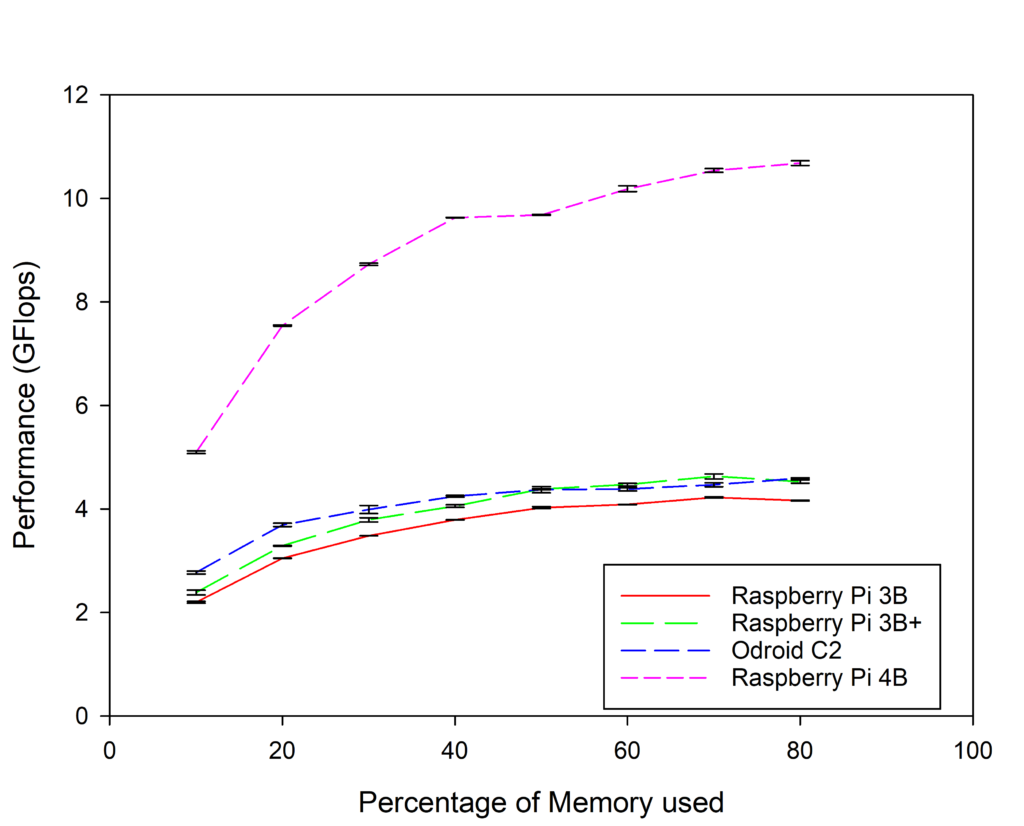Our paper about the performance available using modern Single Board Computer (SBC) clusters has now been published the the Journal of Future Generation Computer Systems.
Philip J. Basford, Steven J. Johnston, Colin S. Perkins, Tony Garnock-Jones, Fung Po Tso, Dimitrios Pezaros, Robert Mullins, Eiko Yoneki, Jeremy Singer, and Simon J. Cox, (2019) Performance analysis of single board computer clusters. Future Generation Computer Systems. (doi:10.1016/j.future.2019.07.040).
Since the writing of that paper the Raspberry Pi 4 has been announced, meaning it could not be included in the main body of the text. Despite this we wanted to see how the changes introduced in the new version changed the available performance. The Raspberry Pi 4 is available in 4 different memory sizes, we purchased a 2GB varient so it is directly comparable to the Odroid C2.
The Raspberry Pi 4 Model B was then benchmarked used HPL and ATLAS compiled on the device as per the instructions on a previous blog post. To make sure that the Raspberry Pi did not overheat or enter CPU throttling mode a metal heatsink was attached to the CPU, and a 60mm fan was arranged to blow air over the surface of the Raspberry Pi. The Raspberry Pi was powered using an offical Raspberry Pi 4 USB-C power supply. Where the tests of the SBCs compared in the paper we performed on an isolated network the tests for the Raspberry Pi 4 were performed on the main university network which may have introduced a performance penalty.

As can be seen in the chart the Raspberry Pi 4 significantly out performs the other SBCs at all problem sizes with a maximum of 10.68GFlops/s reached at 80% of RAM usage (swap disabled).
The initial testing of the Raspberry Pi 4 Model B shows that as a single node it has significantly better performance than any of the SBCs previously compared. It is hoped that as the network connection is capable of full gigabit/s speeds it will also scale better than the previous Raspberry Pi SBCs when combined into a cluster. For full details of the methodology used, and the performance of 16 node SBC clusters please read the published paper from doi:10.1016/j.future.2019.07.040 .